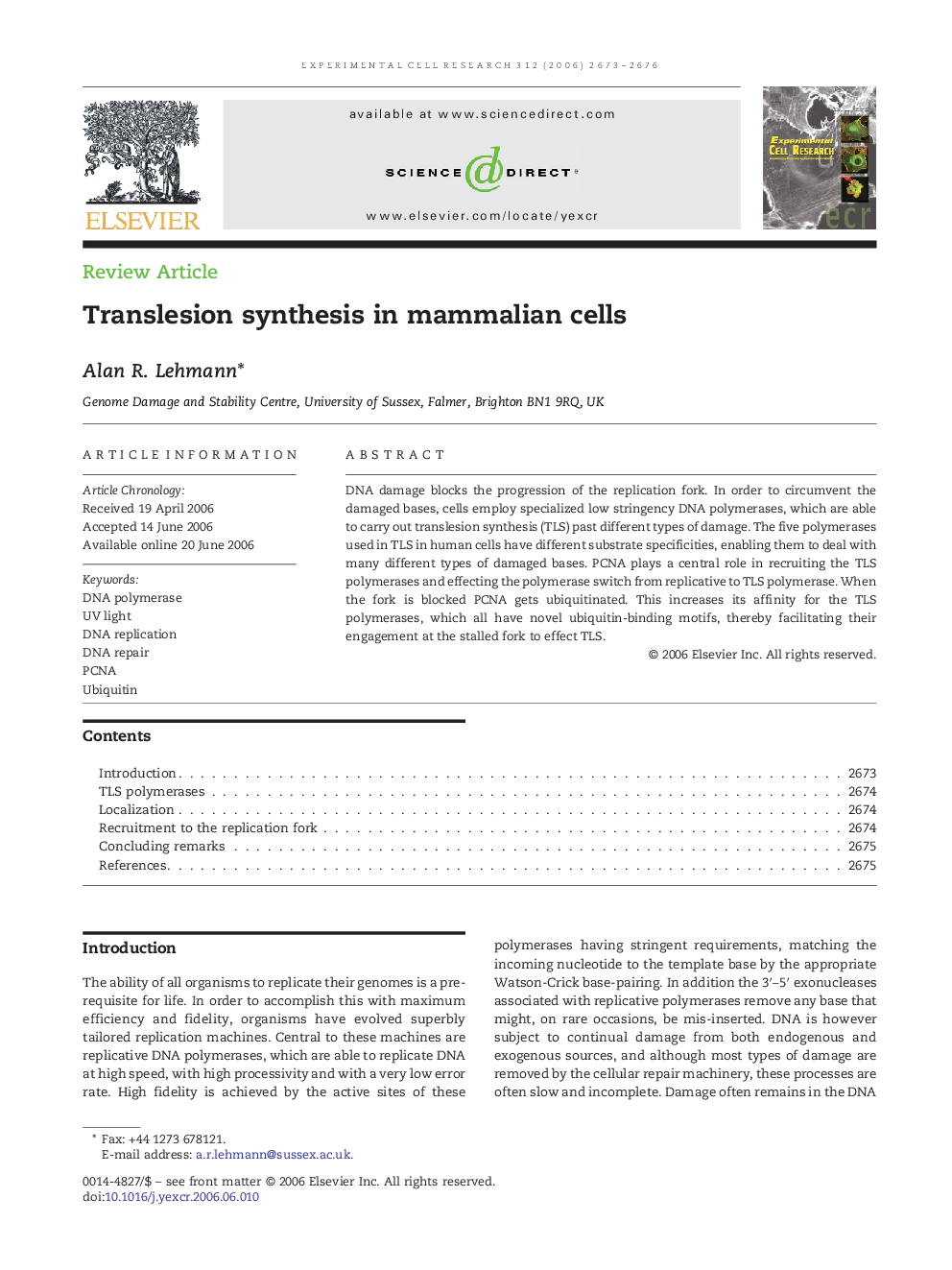| کد مقاله | کد نشریه | سال انتشار | مقاله انگلیسی | نسخه تمام متن |
|---|---|---|---|---|
| 2132127 | 1086675 | 2006 | 4 صفحه PDF | دانلود رایگان |
عنوان انگلیسی مقاله ISI
Translesion synthesis in mammalian cells
دانلود مقاله + سفارش ترجمه
دانلود مقاله ISI انگلیسی
رایگان برای ایرانیان
کلمات کلیدی
موضوعات مرتبط
علوم زیستی و بیوفناوری
بیوشیمی، ژنتیک و زیست شناسی مولکولی
تحقیقات سرطان
پیش نمایش صفحه اول مقاله

چکیده انگلیسی
DNA damage blocks the progression of the replication fork. In order to circumvent the damaged bases, cells employ specialized low stringency DNA polymerases, which are able to carry out translesion synthesis (TLS) past different types of damage. The five polymerases used in TLS in human cells have different substrate specificities, enabling them to deal with many different types of damaged bases. PCNA plays a central role in recruiting the TLS polymerases and effecting the polymerase switch from replicative to TLS polymerase. When the fork is blocked PCNA gets ubiquitinated. This increases its affinity for the TLS polymerases, which all have novel ubiquitin-binding motifs, thereby facilitating their engagement at the stalled fork to effect TLS.
ناشر
Database: Elsevier - ScienceDirect (ساینس دایرکت)
Journal: Experimental Cell Research - Volume 312, Issue 14, 15 August 2006, Pages 2673-2676
Journal: Experimental Cell Research - Volume 312, Issue 14, 15 August 2006, Pages 2673-2676
نویسندگان
Alan R. Lehmann,